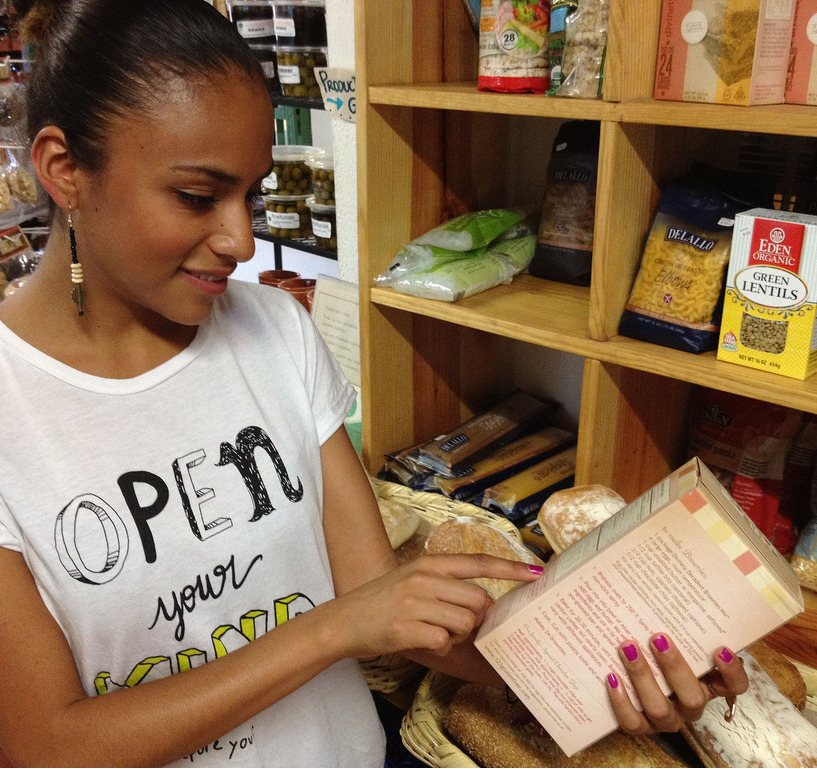Consumers rely on labels, advertising and marketing information to help them choose products they believe to be safe, healthful and produced using practices that are aligned with their values. Many food companies exploit this fact. They knowingly mislead consumers by claiming their products are “natural” when in fact those products contain pesticides, genetically modified organisms (GMOs), antibiotics, growth hormones and artificial ingredients.
The most prevalent examples of false labeling and advertising are use of terms like “Natural,” “All Natural” and “100% Natural.”
Cornerstone Natural, a consultant to the natural products industry, predicts “explosive growth” in U.S. sales of “natural” products, reaching $252 billion by 2019. Driving this growth is consumer demand for healthier food produced using sustainable and humane farming practices.
Consumer demand for healthier, non-GMO, pesticide-free food is also driving growth in the organic market. Sales of certified organic food and products reached $50 billion in 2017, amounting to more than 5 percent of all grocery store sales, including approximately 10 percent of all produce sales. That’s strong growth. But as long as consumers equate “natural” with certified organic, and as long as companies exploit that perception, the organic market will remain at a disadvantage.
A 2014 Consumer Reports poll found that 66 percent of consumers believe a product labeled “natural” has no artificial ingredients, pesticides or genetically modified organisms, and 86 percent believe that it should mean those things. In 2016, Consumer Reports released a new survey showing that 73 percent of consumers seek out foods labeled “natural.” Many consumers equate the word “natural” with “organic” and some even believe that “100% Natural” is better than certified organic.
Natural vs. organic
There is a big difference between a certified “organic” product and a “natural” product. Food products can be labeled “organic” only if they are independently certified as meeting U.S. Department of Agriculture’s (USDA) National Organic Program standards. However, with the exception of meat and poultry, there is no legal definition of “natural” as it applies to food. The term is unregulated.
The USDA defines “natural” only in the context of labels on meat and poultry. And that definition is very narrow. Under USDA regulations, meat and poultry can be labeled “natural” if it is free of artificial flavor or flavoring, coloring ingredient, or chemical preservative or any other artificial or synthetic ingredient, and if the product and its ingredients are not more than “minimally processed.” The USDA definition of “natural” for meat and poultry does not address the presence of antibiotics, growth hormones or other drugs and/or pesticides, nor does it address issues of animal welfare.
Despite pressure by the courts to do so, the U.S. Food & Drug Administration (FDA) has so far declined to legally define the term “natural” for foods other than meat and poultry. As a result, knowing that consumers seek out the word “natural” when buying foods because they believe “natural” means the product is free of GMOs, pesticides and artificial ingredients, food companies routinely label products “natural,” “all-natural” and “100% natural” in order to increase sales. In 205, the FDA said it would finally address requests for a definition of “natural.” And in a February 2018 article in the New York Tiems, an FDA official suggested the agency would weigh in on the issue “soon.” But the term remains, at least legally, undefined.
Taking it to the courts
OCA’s Myth of Natural Campaign educates consumers about the misleading use of the term “natural” and the difference between “natural” and “certified organic” products.
Through our Myth of Natural Campaign, we directly confront food companies—sometimes using consumer protection laws like those in Washington, D.C. and California as the basis for lawsuits—for labeling or marketing products as “natural” when independent lab testing shows the products to be contaminated with pesticides, antibiotics and other drugs, and “unnatural” ingredients.
Examples include: Nature Valley Granola Bars, which tested positive for glyphosate, the active ingredient in Monsanto’s Roundup® weed killer; Post Shredded Wheat, which tested positive for glyphosate (the suit has been settled); and Sioux Honey, which tested positive for glyphosate.
OCA’s Myth of Natural Campaign also addresses other labeling and marketing claims, many of which imply that products were produced using “natural,” “sustainable” or “socially responsible” methods of production.
The Myth of Natural Campaign also takes on corporations like Ben & Jerry’s that claim to be “socially responsible” and “environmentally friendly” despite the presence of pesticides in their products and the use of toxic chemicals or unfair labor practices in their supply chains.
According to an independent survey, 55 percent of consumers are willing to pay more for products from socially responsible companies.
OCA’s Myth of Natural Campaign aims to educate and protect consumers from false labeling and marketing claims. It also aims to protect organic producers from marketing practices that put them at a disadvantage in the marketplace. Higher production costs are associated with producing products without toxic chemicals, artificial ingredients, hormones and antibiotics, and with being required to adhere to strict organic standards for animal welfare and other production practices. This results in organic producers having to charge a premium. When companies that make “natural” claims can also charge a premium, or undercut prices charged by legitimate organic producers—solely on the basis of false consumer perception—organic producers suffer financially.

